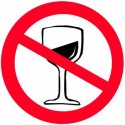Qualities of the Best Alcohol Treatment Centers
Data gathered by the Substance Abuse and Mental Health Administration show as much as 47 percent of the people discharged from alcohol and drug treatment centers successfully completed their treatment programs in 2006. While different factors, such as types of services provided and the type of problem being treated influence the results, the quality of services offered and the success rate of each program carry considerable weight as well.
Finding the best alcohol treatment centers has as much to do with the type of treatment a person needs as it does the quality of any one particular program. As alcoholism is a lifelong disease, the best alcohol treatment centers also include aftercare services as part of their overall treatment approach.
Individualized Treatment Approach

The best alcohol treatment centers will offer aftercare services.
With the thousands upon thousands of treatment centers in existence, even the best alcohol treatment centers number well into the hundreds and hundreds. Ultimately, a program’s ability to address the treatment needs of the individual determines its success rates as each person’s situation differs. While centers that use the “one-size-fits-all” approach may very well offer quality services, customizing these services to meet the needs of each client determines how effective any one program can be.
The best alcohol treatment centers offer an individualized treatment approach that meets each client where he or she is at in the recovery process. Individualized treatment planning considers a person’s past history with alcohol, his or her current treatment needs and lays out a plan for how he or she will remain sober for the long term. As some people may enter alcohol treatment with other needs, such as employment and education training, the best alcohol treatment centers will address these needs as part of a person’s overall treatment process.
Accreditation & Success Rates
As with any organization or agency offering services to the public, the best alcohol treatment centers will hold the appropriate accreditation credentials. Accreditation indicates a treatment center meets certain required standards as put in place by the state where it resides. Ensuring treatment center staff hold the necessary licensing and experience to treat alcohol addiction also falls within accreditation requirements. Without accreditation credentials, a treatment center may offer sub-standard services that can do more harm than good in the long run.
The best alcohol treatment centers also keep a record of their success rates in treating alcohol addictions. While each center can compile these statistics on their own, rates compiled by an objective, outside agency will most likely contain more reliable figures overall.
Aftercare Services
As alcoholism is a lifelong disease, the recovery process is far from over once a person completes a treatment program. The best alcohol treatment centers recognize the length and breadth of the recovery process. To address a person’s long term recovery needs, the best alcohol treatment centers offer a range of aftercare services to ensure its clients have the needed supports in place once they complete their program.
Aftercare service options include:
- Referrals to community support groups
- Referrals to any services a person needs (vocational, education, etc.) to maintain their sobriety
- A discharge plan that lays out ongoing recovery goals and objectives
Life stressors and challenges pose an ongoing threat to an alcoholic’s recovery. From this standpoint, meeting a person’s aftercare needs become an essential component for treating alcoholism.
Resources:
Substance Abuse & Mental Health Administration News
http://www.samhsa.gov/samhsanewsletter/Volume_17_Number_4/TreatmentDischarges.aspx



